Cimino’s HEAVEN’S GATE: Epic Failure Or Flawed Masterpiece?
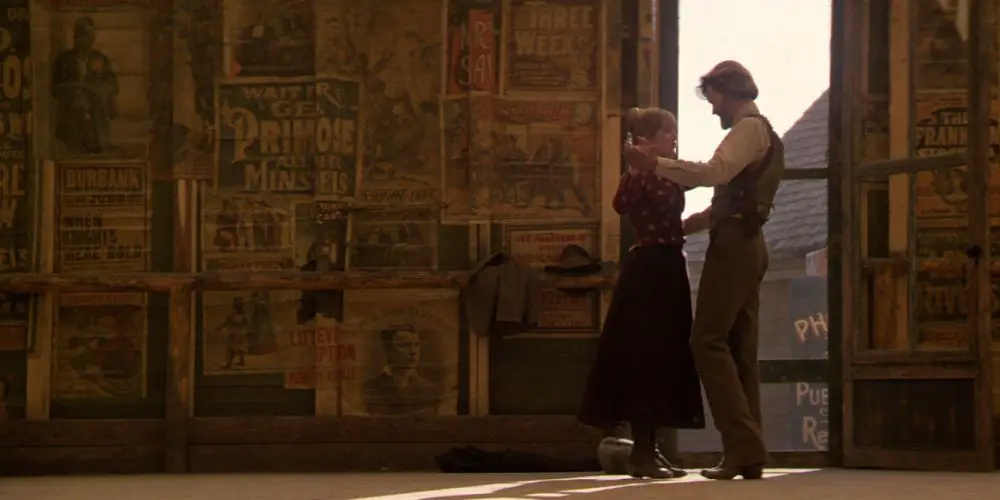
Has a soft spot for Hammer Horror films and is…
Editor’s note: Incidentally, we were working on this article a few weeks before Cimino’s death. Sadly, Michael Cimino passed away on July 2 2016, and with this article, we are paying homage to one of the director’s films that had such a significant impact on the entire Hollywood system.
The following article takes a look at Michael Cimino’s epic revisionist western Heaven’s Gate. The film has a stellar cast including Kris Krisofferson, Christopher Walken, John Hurt and Isobella Huppert and was hotly tipped to be a major success. Cimino’s epic ultimately brought about the downfall of the “New Hollywood” era, a period than witnessed some of America’s finest films committed to celluloid.
Negative press while the film was still in production appeared in many film publications. Many critics had their knifes sharpened before the film’s release and swiped at Cimino’s piece, leading it to become a wounded beast.
Heaven’s Gate has gone onto to be included in the list of “the worst films ever made”. The film is an important one to discuss because of its production history, and how a talented director such as Cimino has a film on the “worst ever” list. In this article I will investigate to see if Micheal Cimino’s Heaven’s Gate is deserving of the critical mauling it received.
Production
The production of Heaven’s Gate is well-known for its troubled shooting demands, endless retakes and script rewrites. Director Michael Cimino was riding a crest of a wave after the success of Oscar wining film The Deer Hunter, when heading into the production of Heaven’s Gate in 1980.
The initial budget given to Cimino for the film was $11.6 million, but was he was also provided with a carte blanche regarding the budget. By the time the film was completed, the budget had swollen to a massive $40 million, and remember this was 1980! This would come back to haunt studio United Artists as it went bankrupt soon after the release of the film.
Before the film had been completed, many newspapers had printed stories about the film’s production. Cimino’s tyrannical demands, animal cruelty and endless retakes all featured in these stories. The film’s production wrap date was pushed back numerous times to allow Cimino complete the film. For a more insightful look at the production woes the film encountered, Unmaking of An Epic: The Production of Heaven’s Gate is a brilliant article to read.
The Critics Have Their Say
Cimino’s film finally hit theaters in November 1980 after months of delays, with the press eager to view the film that had caused so much controversy prior to its release.
By all accounts the premiere was a disaster. At the intermission of the film, many critics were apparently bored and were already stating how much they hated the film. Things were set to get worse for Cimino and United Artists as the film went on general release.
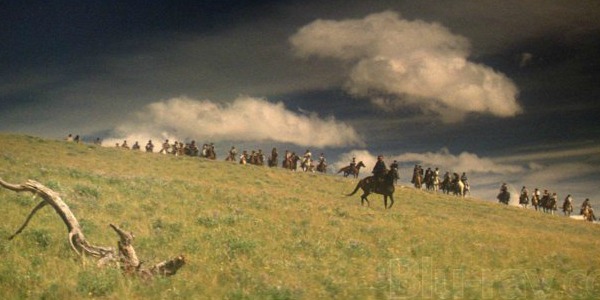
Prominent film critics savaged Heaven’s Gate. New York Times critic Vincent Canby described it as “a forced four-hour walking tour of one’s own living room. He went on to state that Cimino had perhaps sold his soul in order to collect the best director Oscar he won for The Deer Hunter.
After just a one week run, United Artists pulled the film from cinemas across America and postponed the worldwide release. The film resurfaced in 1981 in a “director’s cut” version; it was trimmed down to a two and a half hours. Critics were just as harsh this time around, with many such as Roger Ebert calling it “the most scandalous cinematic waste I have ever seen”.
These are just some of the scathing reviews Heaven’s Gate received upon release, with each critic seemingly trying to outdo the other with their comments. It almost became a competition between critics to see who could write a review with the best put downs for both its director and cast.
Soon, the film was being discussed as one of the worst mainstream movies ever to come out of Hollywood. Financially Heaven’s Gate was also a disaster, with $3.5 million ticket sales gathered between both versions that were released. This was well short of its $40 million budget.
Micheal Cimino’s directing career lay in ruins after the release of Heaven’s Gate. Cimino’s rise to the top of Hollywood was curtailed and his career has never recovered from the Heaven’s Gate disaster. Terrible production control, bad reviews and a career left in tatters are some of the reasons why Heaven’s Gate graces the list of films that are considered the worst.
The Plot
Heaven’s Gate is a fictional take on the Johnson County War which took place in the state of Wyoming between the years 1889 to 1893. The plot follows Jim Averill (Kris Kristofferson) a man born into a wealthy family who is now the Marshal of Johnson County.
Johnson County has seen a rise in poor European immigrants migrating to the area in search of a new life. After meeting with an old Harvard class mate, Billy Irvine (John Hurt), Averill learns about the Wyoming Stock Growers Association’s (known as the Association) plan to kill 125 named settlers for crimes including rape and cattle rustling.
Averill sees the plan as a ploy to drive the settlers off the land, and for the wealthy to buy the land up. Although the Association has the backing of the United States government, Averill decides to take a stand and help the immigrants fight the wealthy land owners who have raised a militia.
This leads Averill into a confrontation with his friend Nate Champion (Christopher Walken) who works as an enforcer for the Association. It also brings madame Ella Watson (Isabelle Huppert) into the conflict, who is romantically involved with both Averill and Champion.
Beautiful Distractions
Clocking in at a colossal 219 minutes (the working print was 325 minutes!), Cimino clearly isn’t in a hurry to tell his story. This is one of the main problems people will encounter with this film, it’s long, very long. Moreover, Cimino doesn’t help with how he approaches scenes with his direction style. He indulges in the smallest of details and seems to linger on them for what seems like an eternity.
The first act of the film is a prime example of these indulgences at work, as we witness the characters of Jim Averill and Billy Irvine’s graduation from Harvard. Clearly this act is vital to setting up the history that the two characters have with one another, and this will become crucial to the plot of the film later on. This takes an entire 15 minutes as the viewer is treated to what feels like the entire duration of an actual real life graduation.
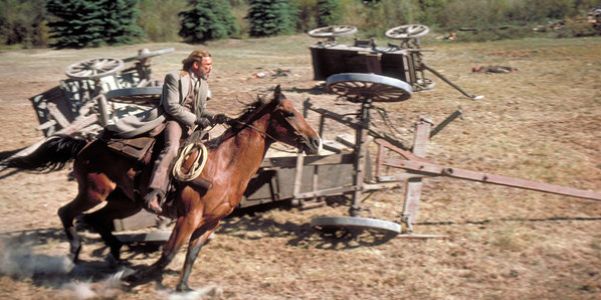
In what seems like a waste of 15 minutes, there are moments of beauty and some truly stunning scenes. As the class speeches are read out, the cinematography by Vilmos Zsigmond is simply magnificent in how he captures the light. Cimino’s eye for synchronisation is displayed brilliantly, with all the class dancing in a huge circle around an old tree, as young women look on.
As the men dance with the women, Cimino weaves in an out of the dance floor effortlessly with the camera. It must be said that although it contains some exquisite sequences, the open act doesn’t add much to the plot other than Billy and Jim’s friendship. Surely this could have being wrapped up in a couple of scenes?
A dance scene features again towards the mid-point in the film, this scene garnered most of the brunt of criticism from critics at the time of release. The dance sequence which takes place at Heaven’s Gate roller-skating hall clocks in at ten minutes and again doesn’t add much to the plot.
While just like the dance at the graduation, Cimino captures the dance with eloquence as the characters skated around the hall. The scene is jarring and doesn’t really fit into narrative of the film. Clearly it is to show how the relationship of Jim and Ella is coming along, but there isn’t a need to drag it out for ten minutes. Heaven’s Gate is littered with moments like these, scenes that do not really need to be the length that they are, but are beautiful nonetheless.
Some people will certainly find Cimino’s obsession with small details infuriating. Although I found these scenes described to be quite long and distracting, I still found myself enthralled by Cimino’s meticulous direction.
Cimino Loses Sight
With all his acute attention to scene details, it seems as if Cimino forgot to flesh out his characters. While most of the actors give great performances with the material they are given, the film falls flat because of lack of character detail. John Hurt, Christopher Walken and Kris Kristofferson’s characters have the potential to be something great but ultimately end up coming across as incomplete. This leads the characters to come across as cold, it is hard to sympathize with them as there is no depth.
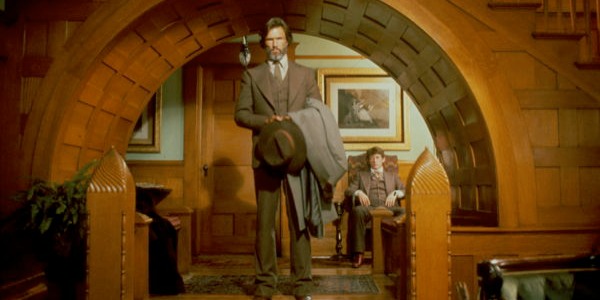
The character of Ella Watson, considering the role she plays in the films narrative, is poorly developed. Isabelle Huppert’s portrayal of the character has as much charisma as a brick wall. Cimino’s insistence on casting her is baffling; she couldn’t speak fluent English and she was learning it as she went along. Due to her poor English, her dialogue is, at times, impossible to understand.
The immigrants who are so vital to the plot of the film seem like an afterthought. When engaging with one another, they speak their native tongue, but Cimino didn’t add subtitles, so it is very hard to understand what is going on. Every time they gather in a room together they just seem to scream and shout at one another in utter confusion. Immigrant characters seem to fade in and out of the film, some disappear completely while others turn up towards the final act.
The characters are composed poorly, which is a surprise given how much detail Cimino put into the characters featured in The Deer Hunter. This is what I found to be one of the major stumbling blocks of the film: due to its length, better characterisation is a must if you want people to engage with the plot.
Redeeming Feature: Scenery
Cimino and cinematographer Vilmos Zsigmond’s collaboration on the scenes that grace Heaven’s Gate is exquisite. The cinematography captures the American West in gorgeous yellow tone, which is seen throughout the film. The battle scenes in the final act of the film are stunningly directed and capture the chaos of a battle well. The screen is a mixture of blood, dust and gun smoke as men fight for their lives.
As per the custom of a western film, we are treated to the vast and rugged landscape that makes up cinema’s version of the West. Cimino delivers these scenes in abundance with a deft touch, but he also brings another element that is absent from most westerns: the city. As Jim makes his way through the city of Casper, Wyoming, it is booming with activity.
Usually in the western genre, the towns are barren and desolate; ghost towns. Think of any great westerns from John Ford or Howard Hawks and the cinematic space is often sparse, mostly taken up by landscape.
The city is awash with people trying to go about their daily lives. The screen is crammed with people, buildings and animals so much so that the dialogue is nearly impossible to hear because of the hustle and bustle of the city. The city resembles an industrial one rather than a frontier outpost. The cinematic space is clogged, something which is quite unusual for a western.
Conclusion
Heaven’s Gate is a deeply flawed film, there is no escaping that fact. Cimino seems to have lost all restraint and fallen into indulgence while shooting the film. It seems as if Cimino thought that the sheer scale and length of the film would leave both audiences and critics in awe. It is not an easy film to digest, as it is so uneven in parts; it can leave you wanting both more and less.
The film is a spectacular mess that leaves you ruing that Cimino wasn’t more concise and focused on the story he wanted to tell. The plot is just a little too thin to warrant a three and half hour film. Although a fictional portrayal of the events, the film is an allegory of how America has treated its immigrants throughout the centuries. It is a topic that is still a lively one today and something of a sore spot in American society.
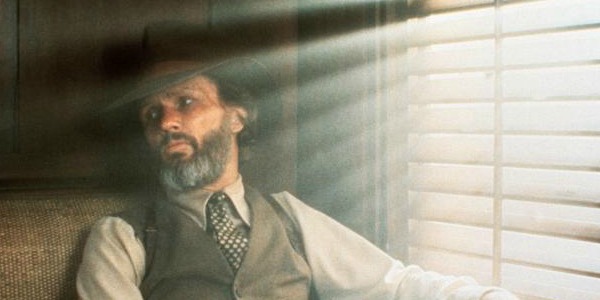
Is it the worst film ever produced by a major Hollywood studio? I don’t think so, it is certainly flawed and could have been executed a lot better than it was. If Cimino had reigned in his ego and focused more, we could be discussing one of the greatest films ever to grace the silver screen. Alas, while its aim was very high, Heaven’s Gate didn’t quite reach the heights it could have. All is not lost though, it is still an immensely absorbing film and there is little wonder as to why it has gained a cult following over the years.
I would recommend lovers of cinema to seek it out if they have not watched it; “It has many overlooked virtues” as Martin Scorsese once stated. It is a cliché, but they certainly don’t make films like this anymore. It is also a film that may be better second time around.
Have you seen Heaven’s Gate? Do you think it is as bad as critics first made out?
Does content like this matter to you?
Become a Member and support film journalism. Unlock access to all of Film Inquiry`s great articles. Join a community of like-minded readers who are passionate about cinema - get access to our private members Network, give back to independent filmmakers, and more.
Has a soft spot for Hammer Horror films and is constantly looking to further his knowledge of cinema.













